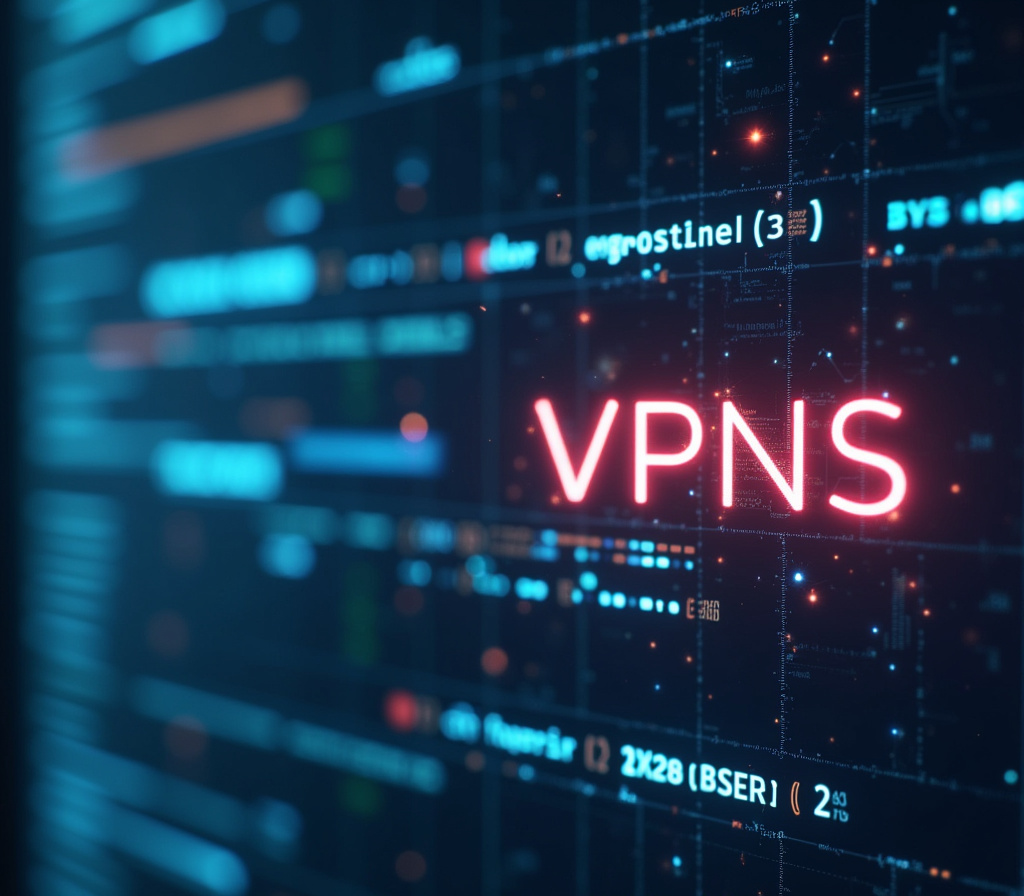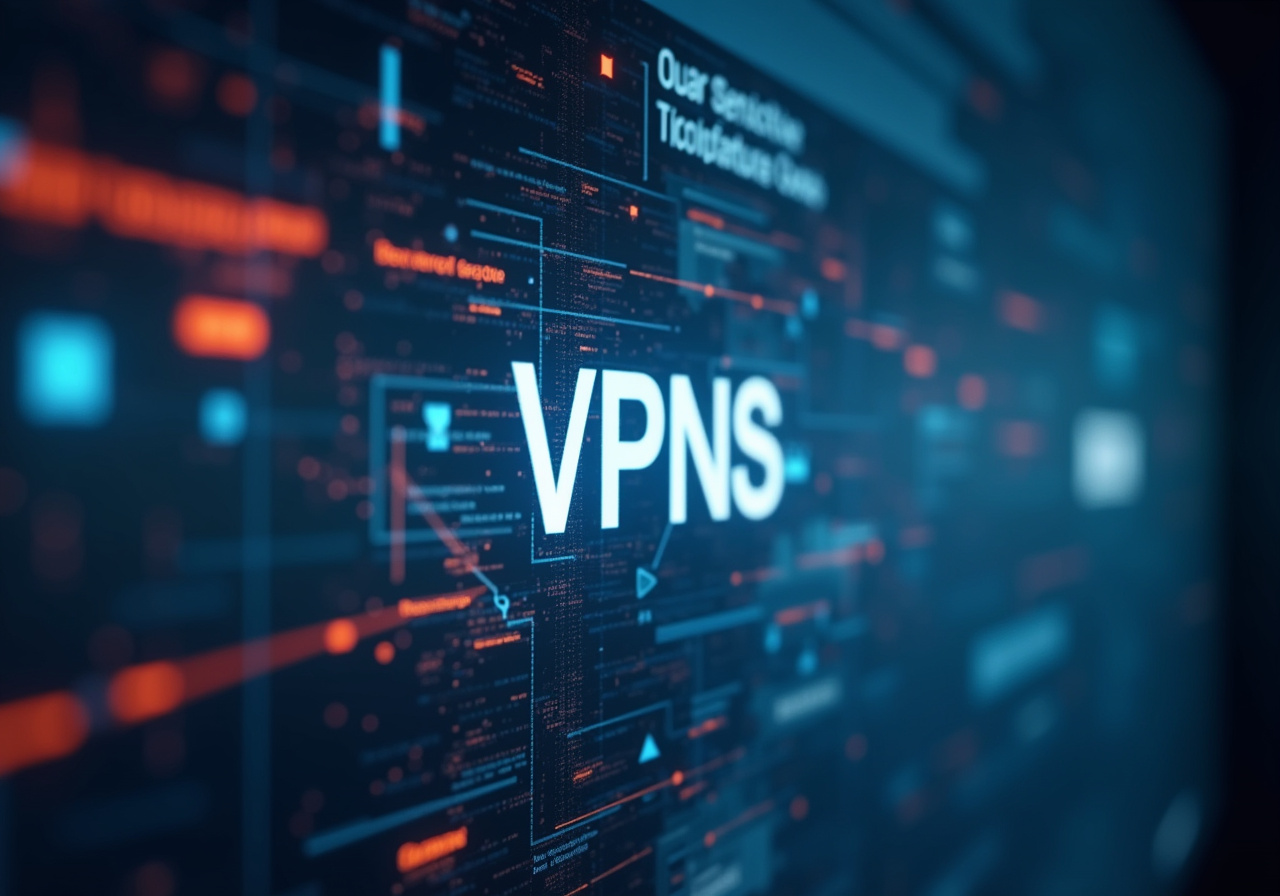VPNs for University Networks: Enhancing Academic Freedom

Table of Contents
university VPN
The modern university is a dynamic ecosystem, heavily reliant on digital resources, global collaborations, and the free exchange of ideas. However, this increasing interconnectedness also brings forth significant challenges – from censorship and data breaches to the protection of sensitive research data and intellectual property. A robust (Virtual Private Network) emerges as a pivotal technological solution, bolstering by providing unrestricted , strengthening , and fostering secure communication channels.
A well-implemented transcends being a mere software application; it becomes a cornerstone of the academic mission, facilitating the uninhibited pursuit of knowledge, encouraging interdisciplinary collaboration, and paving the way for the dissemination of groundbreaking research across geographical boundaries. One of the most fundamental ways a VPN safeguards academic freedom is by effectively circumventing geographical restrictions, censorship, and content filtering -- barriers that can severely limit the scope of inquiry and stifle intellectual exploration. A vast amount of scholarly articles, specialized research databases, essential educational videos, and even entire online courses are rendered inaccessible in certain regions due to a complex web of copyright laws, carefully negotiated licensing agreements, or even politically motivated filtering.
This digital divide disproportionately impacts international students studying abroad, faculty members conducting research overseas, and scholars engaged in collaborative projects with institutions in countries with different internet access policies. For these individuals, the inability to access vital information can significantly hamper their academic progress and impede their ability to contribute meaningfully to their respective fields. A VPN empowers users to overcome these restrictions by allowing them to connect to a server located in a different geographical region.
Effectively masking their true IP address and replacing it with one associated with the server's location. By appearing to be browsing from within a country where the desired resources are freely available. This simple yet powerful mechanism unlocks a wealth of previously inaccessible books, enabling international researchers to tap into critical datasets, allowing students to complete assignments that would otherwise be impossible, and ultimately empowering educators to deliver more comprehensive and globally aware instruction.
Consider a history student diligently researching primary source documents held within a foreign archive accessible only within that nation's borders – a VPN becomes the digital key, unlocking access to invaluable firsthand historical accounts. Furthermore, a university VPN plays a critical role in promoting equitable , particularly for marginalized communities or individuals residing in regions with stringent censorship regimes. Academic freedom is not merely about granting access to readily available information; it embodies the liberty to challenge dominant narratives, explore unconventional perspectives, and engage in open dialogue on potentially sensitive or controversial matters.
By creating a secure and often anonymous channel for communication and information retrieval, a university-provided VPN empowers students and faculty members alike to investigate challenging topics objectively, access viewpoints that are often suppressed, and actively participate in global discussions without fearing potential digital surveillance, intimidation, or even acts of reprisal. The protection of privacy is critical to cultivate the free exchange of ideas. The ethical considerations around information access and scholarly integrity form a crucial cornerstone of academic freedom.
Universities bear the intrinsic responsibility of nurturing an environment where intellectual curiosity can flourish without being shadowed by external pressures, arbitrary limitations, or potential censorious oversight. When the principles of academic freedom are eroded or compromised, the fertile ground for groundbreaking research and truly innovative thinking becomes barren, leading to profoundly detrimental repercussions for the overall advancement of knowledge and progress within society as a whole. Therefore, it is critical that Universities continue to push for VPN integration where applicable to unlock human potential and safeguard the fundamental principles of knowledge.
Ensuring a future of global innovation and learning.
information access
Beyond facilitating unrestricted , a strategically implemented strengthens by actively safeguarding sensitive data, protecting intellectual property, and ensuring the confidentiality of groundbreaking research initiatives. Universities serve as dynamic hubs brimming with highly valuable research, often pushing the boundaries of knowledge and leading to significant advancements across various disciplines, including science, technology, medicine, and engineering. This invaluable research data, encompassing confidential experimental results, proprietary algorithms, and sensitive patient information, is increasingly vulnerable to a wide array of cyber threats, from targeted cyberattacks and malicious espionage to unauthorized data breaches and internal security lapses.
The potential consequences of such security breaches can be devastating, potentially leading to intellectual property theft, significant financial losses, reputational damage, and the erosion of public trust in the university's research enterprise. A VPN effectively mitigates these risks by encrypting all internet traffic transmitted to and from university devices and networks. This encryption creates a secure, virtually impenetrable tunnel that prevents unauthorized eavesdropping, protects sensitive data while it is in transit across the internet, and ensures that confidential information remains shielded from malicious actors.
This encryption is particularly crucial when researchers are engaged in the exchange of sensitive data, collaborating on joint research projects with external partners located across different geographical regions, or accessing vital research databases remotely. Without a VPN, this sensitive information remains vulnerable to interception and potential misuse by cybercriminals, competitors seeking to gain an unfair advantage, or even state-sponsored actors intent on stealing valuable intellectual property. Imagine a team of dedicated biomedical researchers diligently working on the development of a new, potentially life-saving drug.
This research inherently involves the constant exchange of highly sensitive data, including confidential clinical trial data, protected genetic sequences, and complex chemical formulas. A VPN becomes a crucial security measure, ensuring that this sensitive information remains protected from both rival pharmaceutical companies and malicious hackers seeking to exfiltrate and exploit the research for their own nefarious purposes. This VPN-secured pathway further facilitates secure collaboration between researchers located in different countries, ensuring that all communications remain secure, confidential, and fully compliant with relevant international data privacy regulations, thereby streamlining the collaborative process and fostering greater international scientific ties.
Furthermore, a VPN plays a pivotal role in upholding the anonymity of research participants, a critical ethical consideration in many research projects. Many research endeavors involve the collection of personal data from individuals, including sensitive medical records, confidential survey responses, or highly personal interview transcripts. Protecting the privacy of these research participants isn't simply an ethical imperative; in many countries, it stands as a strict legal requirement that must upheld to ensure human dignity and welfare.
A VPN enables researchers to anonymize this sensitive data by effectively masking the IP addresses of both the researchers and the participants, making it significantly more difficult for external parties to track individuals, de-anonymize their data, or potentially inflict harm. Upholding ethical research practices remains crucial for maintaining public trust in the academic community and protecting the rights and well-being of all research participants. By prioritizing data security and respecting privacy through the strategic use of a VPN, universities demonstrate an unwavering commitment to the highest ethical standards.
The effort to foster responsible scientific practices must extend beyond security and to the realm of education. A robust, institution-wide training and certification plan should be implemented to ensure the highest level of competency. Furthermore, it is crucial to promote cybersecurity among researchers, faculty, and students, providing them with the skills and knowledge.
Together, these two principles work in tandem. Together, universities can proactively reduce the risk of data breaches, the theft of precious intellectual property, and other potentially devastating cybersecurity incidents, affirming the university's commitment to secure and virtuous business practices.
VPN for campuses
The successful implementation of a necessitates a carefully considered, strategically tailored approach, aligning with the specific needs, existing infrastructure, and unique security considerations of each individual institution. A universal, one-size-fits-all deployment strategy is highly unlikely to achieve optimal results, as each university operates within a unique context, characterized by varying network bandwidth capabilities, distinct user access policies, diverse security protocols, and varying levels of technical expertise among its user base. Prior to embarking on a VPN deployment project, it is crucial to conduct a comprehensive and rigorous assessment of the existing network infrastructure.
The project must pinpoint potential vulnerabilities, and define clearly articulated objectives for the VPN implementation efforts. This assessment should also account for anticipated user volume and patterns of VPN usage, including peak demand periods and the diversity of devices expected to connect to the VPN. The selection of the appropriate VPN technology represents a critical juncture in the implementation process.
A wide range of VPN protocols are available in the market, each exhibiting its own distinct strengths and weaknesses in key areas such as encryption strength, connection speed, overall stability, platform compatibility, and ease of user configuration. Commonly used VPN protocols include OpenVPN, widely regarded for its robust security and open-source nature; IPsec, frequently employed in enterprise environments due to its strong security features; WireGuard, a more recent protocol gaining popularity for its speed and efficiency; and L2TP/IPsec which is easy to configure but has security vulnerabilities. While some VPN solutions are designed for general-purpose internet browsing and accessing geographically restricted content, others are specifically optimized for certain applications, such as secure file transfer, remote desktop access to high-performance computing clusters, or the maintenance of persistent, always-on connections to university resources.
Selecting the right VPN architecture requires careful consideration of security needs and resources. The correct VPN service/protocol and server configuration are paramount because it ensures protection of the university network, its people, as well as students research. Factors that impact the decision include the number of concurrent connections, the amount of network traffic, and the security protocols that the VPN can support.
A properly configured VPN will not only deliver robust security but also contribute to a seamless user experience. Some key configurations that affect bandwidth must be considered. For example: data compression techniques can reduce the amount of data transferred across the VPN, improving bandwidth utilization; Quality of Service (QoS) mechanisms can prioritize certain types of traffic, ensuring that critical applications receive the necessary bandwidth; and VPN split tunneling allows users to route some of their traffic through the VPN while routing other traffic directly to the internet.
As one might know, a robust cybersecurity framework starts from education and cyber awareness; and a large scale deployment of a VPN to any ecosystem such as a University is no different. It is important to communicate information such as the risks associated with using public Wi-Fi networks as well as practical guidelines for creating strong passwords. Security information must be given to the students in multiple formats to accommodate the needs of all.
university VPN
Beyond the technical considerations of VPN protocol selection and server configuration, the establishment of clear and comprehensive usage policies is paramount for ensuring the responsible and secure operation of a . These policies should explicitly outline acceptable uses of the VPN, detail prohibited activities, and articulate the consequences of policy violations. A well-defined usage policy reduces the risk of misuse, promotes responsible online behavior, and helps protect the university's network resources from potential abuse.
The usage policy should clearly state that the VPN is primarily intended for academic and research-related activities, such as accessing scholarly databases, participating in online courses, collaborating on research projects, and conducting university-related business while traveling. To be as efficient as possible and for best practice, the policy should also discourage or prohibit activities like illegal downloading, sharing copyrighted material, engaging in malicious activities, or attempting to bypass security controls. Usage policies should delineate the various parameters associated within cyber security and the proper ways to navigate within the virtual world.
To be as clear as possible the university should define and give examples or hypotheticals situations of what could happen. Enforcement of the VPN usage policy is critical to ensuring compliance. This can be achieved through a combination of technical controls, monitoring mechanisms, and disciplinary actions.
Technical controls may include limiting access to certain websites or services through the VPN, blocking known malicious traffic, and implementing traffic shaping to prioritize authorized activities. Monitoring mechanisms can track VPN usage patterns, detect anomalies, and identify potential policy violations. Regular review of VPN logs can help identify unauthorized activity and prevent future abuses.
Disciplinary actions, ranging from warnings to suspension of VPN access or even more severe penalties, should be consistently applied to address policy violations and deter future misconduct. A cybersecurity team should be in place to ensure all parameters are being met. User education and training are essential components of a successful VPN implementation.
Providing comprehensive training to students, faculty, and staff on how to use the VPN effectively and responsibly can significantly reduce the risk of security breaches and policy violations. Training programs should cover topics such as how to connect to the VPN, how to troubleshoot common issues, how to protect their credentials, and how to recognize and avoid phishing scams. Training should also emphasize the importance of adhering to the VPN usage policy and the potential consequences of non-compliance.
For example, students must be properly trained in order to use the VPN appropriately and avoid the vulnerabilities that come with improper usage. Regular security audits and penetration testing are crucial for verifying the effectiveness of the VPN implementation and identifying any potential vulnerabilities. Security audits should assess the VPN's configuration, security controls, and access policies to ensure they are aligned with industry best practices and the university's security objectives.
Penetration testing simulates real-world attacks to identify weaknesses in the VPN's security posture and assess its ability to withstand malicious activity. The results of security audits and penetration testing should be used to improve the VPN's security posture and address any identified vulnerabilities. Testing helps identify the potential misuse of the VPN.
For example some student may be tempted to use for personal reasons. Testing ensures that parameters are being met from all parties. Ultimately, it improves public trust and increases student body count.
university VPN
In conclusion, the implementation of a represents a strategic investment in , robust , and enhanced digital security, ultimately contributing to a more vibrant, innovative, and globally connected academic environment. By providing unrestricted , safeguarding sensitive research data, and fostering secure communication channels, a VPN facilitates the core mission of higher education: the unfettered pursuit of knowledge and the dissemination of groundbreaking discoveries. However, the success of a university VPN hinges on a holistic approach that encompasses careful planning, appropriate technology selection, the establishment of clear usage policies, comprehensive user education, and ongoing security monitoring and maintenance.
The benefits of a well-implemented university VPN extend far beyond simply bypassing geographical restrictions or encrypting internet traffic. A VPN empowers students and faculty to engage in critical inquiry, challenge conventional wisdom, and explore diverse perspectives without fear of censorship or surveillance. It enables researchers to collaborate securely with colleagues across the globe, protecting their intellectual property and fostering scientific innovation.
It creates a more level playing field for students from marginalized communities, ensuring that they have equal access to the resources they need to succeed. And by bolstering the university's overall security posture, a VPN helps protect against cyberattacks that could disrupt academic operations, compromise sensitive data, or damage the institution's reputation. While it is important to focus on the benefits it is important to focus also on the ethical considerations such as allowing students to access unauthorized content.
By implementing parameters and checks this is avoidable. As universities increasingly rely on digital resources and global collaborations, the need for a robust VPN solution will only continue to grow. Investing in a well-designed and carefully managed VPN is not merely a technological upgrade; it represents a commitment to academic freedom, research integrity, and the advancement of knowledge.
By creating a secure, accessible, and equitable digital environment, universities can empower their students, faculty, and researchers to thrive in an increasingly interconnected world. The modern university is not immune to a digital attack and protecting it should be the first thing Universities should do. To ensure maximum benefit for all students and all faculties while upholding ethical standards, the university needs to continue to invest in cyber security as much as ever.
By integrating ethical standards into the VPN framework a safe environment it promotes within the university by increasing the overall morale and preventing bad actors. Looking ahead, universities should explore emerging VPN technologies and best practices to further enhance their security and effectiveness. These include advancements in VPN protocols, such as quantum-resistant encryption, which can protect against future cyber threats; the integration of VPNs with cloud-based services; as well as the implementation of advanced threat detection and response capabilities.
Further investment in cyber security will boost moral, public trust and increase student body. A VPN will only get you so far, cyber security professionals are the individuals that make it go the extra mile.
Stay Updated
Get the latest VPN news, tips, and exclusive deals to your inbox.




